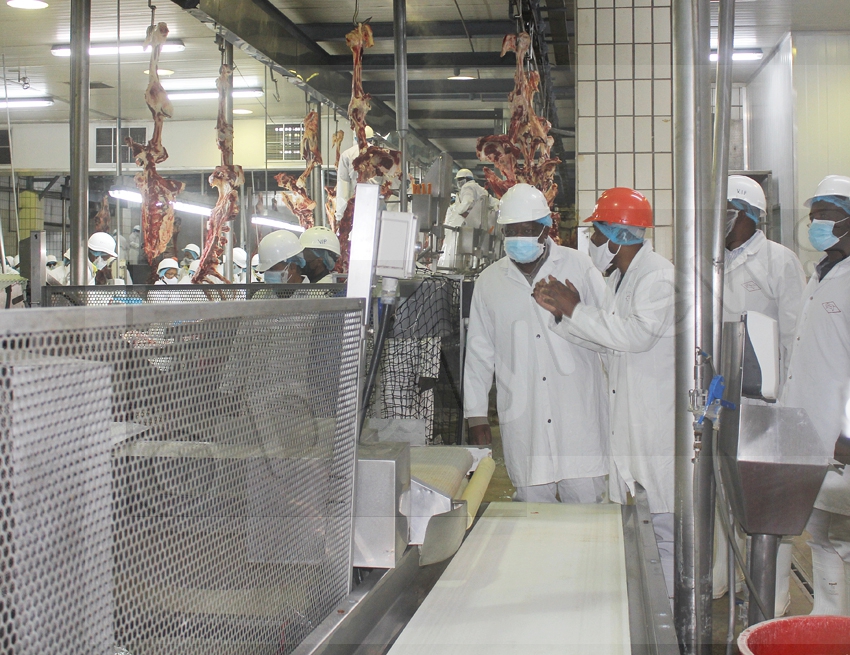ETSSP implementation at about 61 per cent
11 Jul 2021
Basic education assistant minister has told Parliament that the overall implementation of Education and Training Sector Strategic Plan (ETSSP), as at June this year, stands at 61.3 per cent.
Answering a parliamentary question on Wednesday, Assistant Minister Makwinja said expectation was that by last year, funds permitting, some priority areas would have been achieved.
Ms Makwinja indicated that the ministry had nevertheless, achieved some milestones, which included improving quality and relevance of education, equitable access to education, learning outcomes, focus on life-long learning, strengthening skills development with the assistance of the EU Budget Support programme and developing new and alternative pathways for education.
Others include improving management of education, developing a responsive tertiary education system, improving planning and budgeting of the sector as well as utilisation and integration of ICT that resulted in all public secondary schools and 302 primary schools being connected to the Internet.
“However, through the SmartBots village connectivity project all the schools will be connected to high-speed internet by the end of 2022/23.
All schools with ICT facilities have a full time IT officer to support the ICT services in teaching and learning. 2 528 primary, 758 JSS and 14 SSS school teachers have been trained on ICT integration in teaching and learning,” Ms Makwinja said.
Again, she said among the achievements were improvement, monitoring and valuation of the sector as well as a monitoring and evaluation plan put in place.
Ms Makwinja said the ministry, together with the rest of the education sector, however was currently working on implementing the rest of the plan that should be concluded in the next two years, funds permitting, as would be informed by ongoing review.
Furthermore, she said a comprehensive review for the ETSSP was planned for the financial year 2022/2023 to inform the integration of the ETSSP programmes in the ministry’s National Development Plan 12 Agenda to ensure adequate funding.
“A rapid assessment of the ETSSP was conducted in February 2020 through the assistance of the European Union.
The rapid assessment had indicated that the ETSSP implementation in all the key programmes was delayed since there was no dedicated budget set aside for the implementation of the ETSSP. There was no proper monitoring and evaluation plan to track implementation,” she said.
However, she said a monitoring and evaluation plan had since been developed and currently being used to monitor implementation across the education sector.
The assistant minister further told Parliament that there was also an ongoing Joint Annual Sector Review (JASR) which commenced in March this year and scheduled to be completed by September.
The JASR, she said was expected to focus on Technical and Vocational Education and Training (TVET) programmes and was also expected to provide evidence on the overall success in the implementation of the ETSSP.
The JASR is further expected to give an indication on how to redirect and streamline the ETSSP implementation going forward, she added.
Ms Makwinja also indicated that the ministry had developed the General Education Curriculum and Assessment Framework (GECAF), a major curriculum reform that introduced a new Outcomes Based Education (OBE) curriculum, which recognised that each individual was well equipped with unique skills, talents and ways of learning and thus focuses attention on unearthing innovation and creativity.
“Through this, the senior secondary school curriculum has been reviewed and a total of thirty-eight (38) subjects developed. These include Coding and Robotics as part of the Multiple Pathways roll out programme.”
Through the on-going School Digitalisation Project, she said the ministry, within the context of the SmartBots Strategy and in liaison with critical partners, was rolling out functional high-speed Internet connectivity to all schools to increase access for learners and teachers.
“This will facilitate the use of ICT in teaching and learning through training of teachers and provision of individual computer devices for teachers and learners from upper Primary level to Senior Secondary School level together with mobile labs to lower primary school learners,” she said.
She explained that through the development and deployment of such digital solutions, the ministry was leveraging ICT to create an enabling environment for early learning of Coding and Robotics in primary and secondary schools over the next three years through a phased in approach starting at senior secondary level.
“Through partnership with critical stakeholders as well as extra-curricular activities, there are various activities in place including gaming, which create a firm foundation to sharpen creativity and innovation, especially at primary and junior secondary school level,” she added.
Meanwhile, Ms Makwinja told Parliament that the ministry was implementing the ETSSP with the goal to provide an overall policy and strategic framework for the education sector that would play a pivotal role in the development of a modern, sustainable, knowledge-based economy that supports inclusiveness and diversity.
ETSSP is a programme aimed at system-level transformation of the entire education sector from pre-primary to tertiary including life-long learning which entails deliverables that cut across three ministries including basic education, employment labour productivity and skills development as well as tertiary education research science and technology.
The critical priority areas are implemented through six sub-sector programmes, which include early childhood and pre-primary education, primary education, secondary education, teacher education and professional development, tertiary education, together with technical vocational and education and training.
Priority are supported by five thematic areas including lifelong learning, ICT, curriculum, human resource development, education management and information system reform.
MP for Jwaneng/Mabutsane, Mr Mephato Reatile, had asked the minister to update Parliament on milestones achieved with regard to ETSSP goals and timelines.
Mr Reatile also wanted to know how many of the short term, mid-term and long-term goals were achieved, whether a review of the ETSSP 2015-2020 had been done and how the ministry was creating an enabling environment for early learning of coding and robotics in primary and secondary schools with the call for innovation and creativity. ends
Source : BOPA
Author : BOPA
Location : GABORONE
Event : Parliament
Date : 11 Jul 2021



